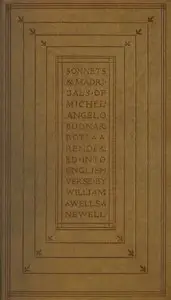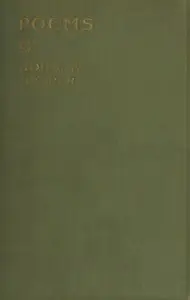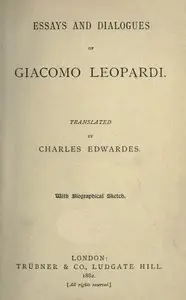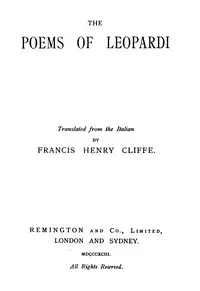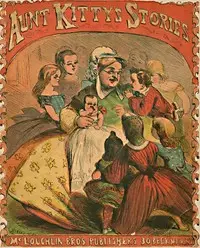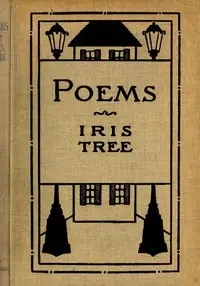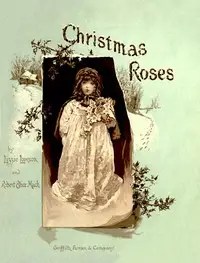"The Poems of Giacomo Leopardi" by Giacomo Leopardi is a collection of moving poems from the 1800s that shows Leopardi's deep thinking and feelings, making him an important Italian writer. These poems look at tough topics like love, sadness, and what it means to be human. They mix hopeful ideas with a sad understanding of life, inspired by Leopardi's own life and Italy's story. The book starts with a helpful introduction that explains Leopardi's place in Italian writing, pointing out his thoughtful ideas, strong feelings, and how his dreams, loves, and pains influenced his poems. It also highlights his focus on the nation and beauty, mixing personal feelings with bigger ideas, while the selected translated work shows sad pictures and speaks of disappointment with life.
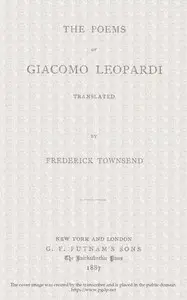
The Poems of Giacomo Leopardi
By Giacomo Leopardi
Explore love, loss, and the search for meaning in a collection of poems filled with sadness and beauty.
Summary
About the AuthorCount Giacomo Taldegardo Francesco di Sales Saverio Pietro Leopardi was an Italian philosopher, poet, essayist, and philologist. He is considered the greatest Italian poet of the nineteenth century and one of the most important figures in world literature, as well as one of the principals of literary romanticism; his constant reflection on existence and on the human condition—of sensuous and materialist inspiration—has also earned him a reputation as a deep philosopher. He is widely seen as one of the most radical and challenging thinkers of the 19th century but routinely compared by Italian critics to his older contemporary Alessandro Manzoni despite expressing "diametrically opposite positions." Although he lived in a secluded town in the conservative Papal States, he came into contact with the main ideas of the Enlightenment, and, through his own literary evolution, created a remarkable and renowned poetic work, related to the Romantic era. The strongly lyrical quality of his poetry made him a central figure on the European and international literary and cultural landscape.
Count Giacomo Taldegardo Francesco di Sales Saverio Pietro Leopardi was an Italian philosopher, poet, essayist, and philologist. He is considered the greatest Italian poet of the nineteenth century and one of the most important figures in world literature, as well as one of the principals of literary romanticism; his constant reflection on existence and on the human condition—of sensuous and materialist inspiration—has also earned him a reputation as a deep philosopher. He is widely seen as one of the most radical and challenging thinkers of the 19th century but routinely compared by Italian critics to his older contemporary Alessandro Manzoni despite expressing "diametrically opposite positions." Although he lived in a secluded town in the conservative Papal States, he came into contact with the main ideas of the Enlightenment, and, through his own literary evolution, created a remarkable and renowned poetic work, related to the Romantic era. The strongly lyrical quality of his poetry made him a central figure on the European and international literary and cultural landscape.

